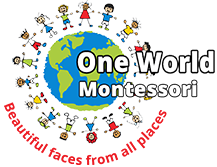OWM Questions
What are hours of operation?
- OWM hours are 6:30am-6:30pm.
When is school closed?
- OWM is only closed for major holidays. OWM-Austin follows PfISD and OWM-Round Rock follows RRISD for school closures regarding weather conditions.
Does school close for the summer?
- No, OWM is open all year around.
How do I arrange a tour?
- Please call 512-836-7262 for our Austin location or 512-520-5400 for our Round Rock location.
Is there a registration fee?
- Yes, there is a $100.00 non refundable registration fee.
Is there a security deposit?
- No, we do not charge a security deposit. We do ask that all families give us a minimum of two weeks notice when leaving our school.
Is there a waiting list?
- Please call school for information regarding our waiting list.
Do you offer part-time?
- Yes, we offer part-time. Our part-time hours are from 8:30am-12:30pm.
Is lunch provided? Where do the children eat?
- Yes, OWM has an on-site chef and everything is cooked fresh daily. The children will enjoy their meals and snack in their classrooms.
Is the school a “nut free” environment (i.e. no peanuts, almonds, etc.)?
- Yes, we are a “nut free” environment.
Montessori Questions
Why should I send my child to Preschool?
- Past and current studies indicate that “From conception to age 4, the individual develops 50% of his mature intelligence; from 4 to 8 he/she develops another 30%.” Many years ago Dr. Montessori wrote, in The Absorbent Mind, “The most important period of life is not the age of university students, but the first one, the period from birth to the age of six. For that is the time when man’s intelligence itself, his greatest implement, is formed.”
What is “work” in a Montessori classroom?
- Work in a Montessori Classroom is any constructive activity done by a child. Just as addition and subtraction are “work:, so are setting the tables and pushing in chairs. A child is free to choose the area and the activity he will be doing from the shelves. The teacher may present a new lesson or direct a child to work.
What is the role of the Montessori teacher?
- The Montessori teacher carefully plans the environment in the interest of the children, facilitates the classroom activity and helps the children progress from one activity to the next. She is trained to work with each child individually, allowing him or her to choose from many activities within his/her range of ability. She stands back while a child is working and allows him the satisfaction of his own discovery.
With all this freedom, isn’t there confusion?
- The concept of freedom in the classroom is a freedom within limits. A child is allowed to work freely as long as the ground rules are followed. Because children have the freedom to follow their interests, they are generally happy and busily involved with their work.
What about socialization and group work?
- Socialization is very much a part of the Montessori method. In the classroom you will notice children interacting continuously, choosing to work on projects together, and older children helping younger ones. Each day there is some group activity and play outside.
Does Montessori employ current research and theory in educational methods?
- Montessori is not a closed or static system of education. While there are certain materials and methods that have proven effective through the years, Montessori is as much an attitude about education and children as it is a specific method. We do incorporate new materials all the time, if we see they can be used in a Montessori approached.
How well do Montessori children adjust to public schools?
- Montessori educated children are generally very flexible and adjust easily to public schools. They are often better students and spend their time in more productive ways because they are self-directed and have positive attitude toward learning.

